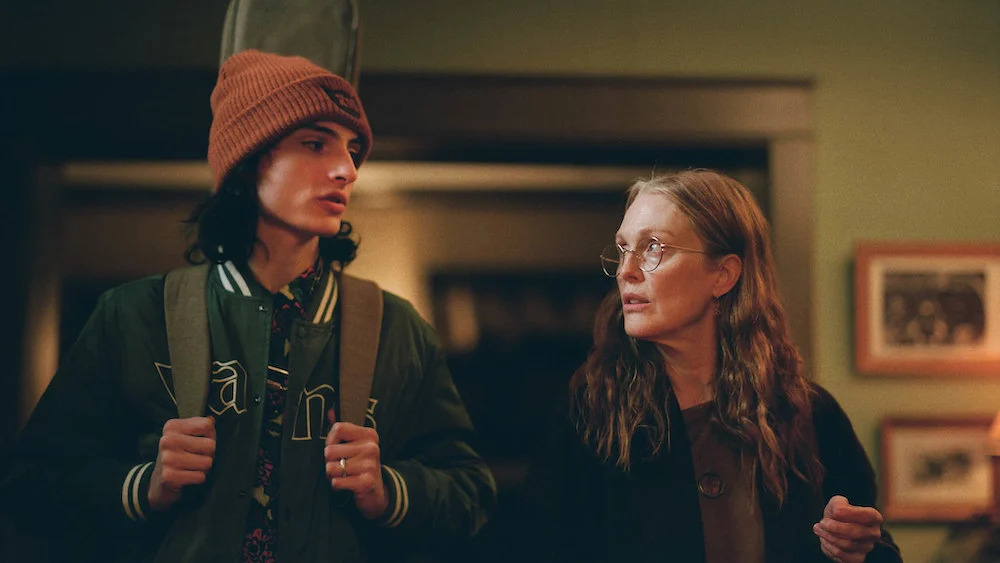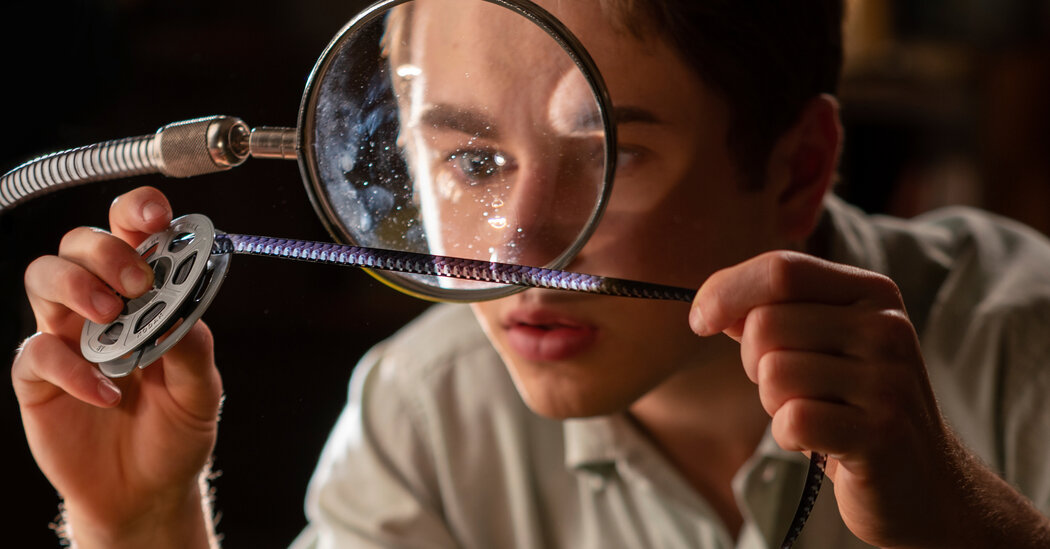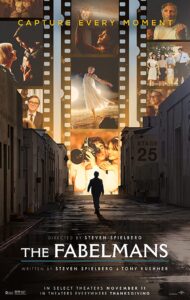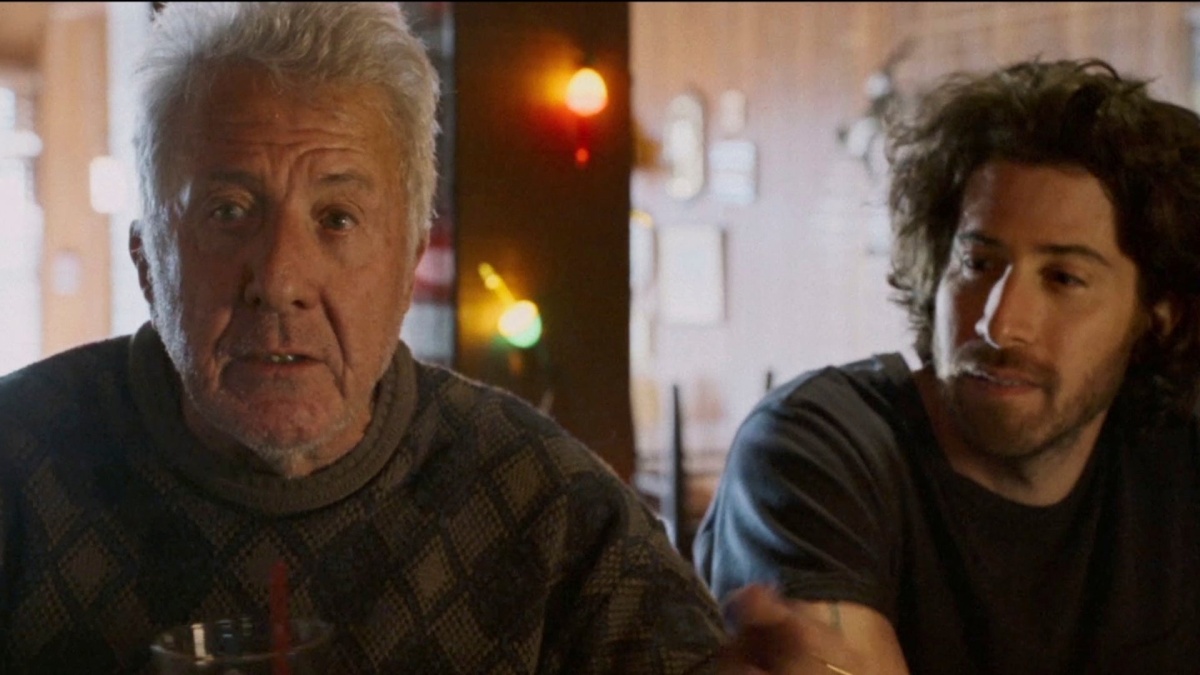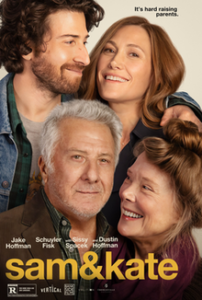When You Finish Saving the World
Posted on January 19, 2023 at 6:00 pm
B +| Lowest Recommended Age: | High School |
| MPAA Rating: | Rated R for language |
| Profanity: | Strong language |
| Alcohol/ Drugs: | Wine, teenage drug use |
| Violence/ Scariness: | References to domestic abuse |
| Diversity Issues: | Diverse characters |
| Date Released to Theaters: | January 20, 2023 |

“Stranger Things'” Finn Wolfhard plays Ziggy, a high school student who is very proud of the 20 thousand fans worldwide who tune in to hear his weekly live streaming performances. He sings original songs he describes as “folk rock with alternative influences” and thanks them for their comments and tips in their native languages.
Ziggy lives with his parents, the reserved, bookish Roger (Jay O. Sanders) and the slightly formal and sardonic Grace (Julianne Moore), director of a shelter for women and children who are survivors of domestic abuse.
Both Ziggy and Grace make efforts to connect to new people. Abused wife Angie (Eleonore Hendricks, creating a character of great specificity and depth in her brief scenes) and her teenage son Kyle (Billy Bryk) arrive at the shelter after police intervention, and Grace is touched by Kyle’s empathy and support for his mother. She becomes over-involved in trying to help him, perhaps displacing her feelings out of frustration with Ziggy. When she brings him on errands and sees him warmly speaking Spanish with one of the shelter’s former residents, she abruptly insists on leaving. She encourages Kyle to apply to college, which makes Angie feel threatened.
And Ziggy is drawn to a girl at school. Her name is Lila (a wonderfully charismatic Alisha Boe). He awkwardly tries to impress her with his live streaming success, but sees that what she cares about is activism on behalf of social justice and the environment. He has no idea how to approach her, and his awkward attempts will be painfully familiar to anyone who has survived adolescence.
There are three kind of music in the film, perhaps three and a half. The first is the light, electronic tune played for us in the audience to establish the tone. The rest are diegetic, the music played and listened to by the characters. Grace favors classical music which she plays in the car. She listens to Bizet’s “Carmen” when she drives Ziggy to school, refusing when he asks her to play anything else. Ziggy plays his original songs on an acoustic guitar, at first about his feelings but then, as he using Lila’s poem about colonialism and exploitation of the Marshall Islands for lyrics.
Eisenberg’s screenplay, based on his Audible book, is thoughtful with an actor’s sensitivity to tone and character, with impeccable casting choices. He knows that he can tell us as much by having Ziggy and Kyle pass each other at school or by the Ziggy he walks down the same sidewalk at different times in the story as he does with Ziggy’s painfully awkward attempts to tell Lila how “lit” and “terra” she is. Moore, as Grace finally watching Ziggy’s songs on YouTube, gives another of her gorgeous performances, with so much going on underneath Grace’s air of righteousness, a sense of loss of the closeness she had to Ziggy as a child, exhaustion over the overwhelming difficulties of the people at the shelter. Some parts of the story do not quite work, but the details are thoroughly imagined and the performances are thoughtful and involving.
Parents should know that this film includes very strong language, wine, and teen drug use, with references to domestic abuse.
Family discussion: Why didn’t Grace want to listen to Ziggy’s music and what changed her mind? Why didn’t Grace tell the truth about helping Kyle? Why did Ziggy go to the shelter? What should he have said to Lila?
If you like this, try: “The Squid and the Whale” and “The Edge of Seventeen”

